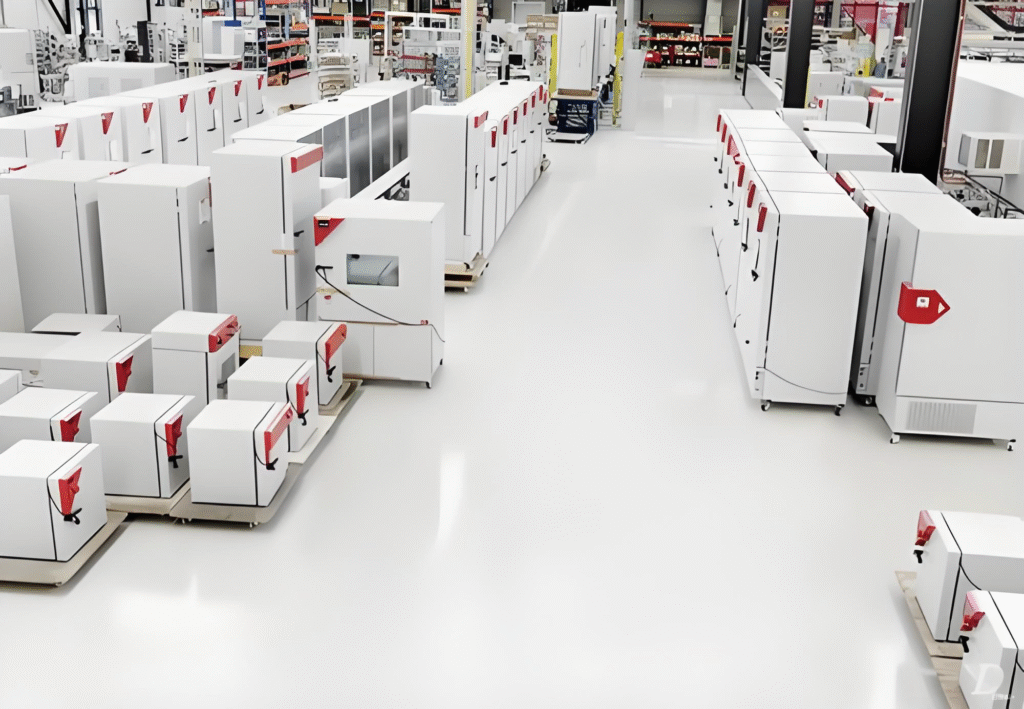Incubator Uses in Laboratory: Functions, Benefits, and Common Applications
Laboratory incubators play an essential role in research, diagnostics, and biotechnology. These versatile tools provide controlled environments for the growth and maintenance of biological samples, cells, and microorganisms. By understanding the incubator uses in laboratory settings, laboratory professionals can optimize their workflows and achieve better results.
In this article, we will explore the functions, benefits, and common applications of incubators in laboratories. Let’s dive into how incubators can make a significant impact on your lab’s success.

1. Key Functions of Incubators in Laboratory Settings
An incubator in a laboratory is responsible for maintaining a controlled environment, crucial for the growth of various biological materials. The main functions include:
- Temperature Regulation: Incubators maintain stable temperatures, which are vital for cell cultures, bacteria growth, and other biological reactions.
- Humidity Control: Many incubators control humidity to prevent samples from drying out and to mimic natural conditions.
- Gas Control: Some incubators, such as CO₂ incubators, regulate carbon dioxide levels, providing optimal conditions for cell cultures.
- Shaking: Shaking incubators agitate cultures, which is essential for growing certain microbial samples or mixing liquids.
In summary, incubators help create a consistent and controlled environment that supports reliable experimental outcomes.
2. The Benefits of Incubator Uses in Laboratories
Laboratory incubators provide several important advantages that can improve efficiency and accuracy in your research. Here are some of the key benefits:
- Accelerated Growth and Development: By creating optimal conditions, incubators promote faster growth and development of cells, microorganisms, and proteins.
- Consistency and Accuracy: With a controlled environment, incubators reduce the risk of variability in experimental results, ensuring that data remains consistent across experiments.
- Increased Efficiency: Incubators automate many tasks, such as temperature and humidity control, which reduces manual work and increases productivity in the laboratory.
In addition to these benefits, incubators provide a safe environment for samples, preventing contamination and ensuring the reliability of your results.
3. Common Applications of Incubators in Laboratories
Incubators are widely used across different laboratory settings, from microbiology to clinical diagnostics. Here are some of the most common incubator uses in laboratory environments:
- Microbial Growth: Incubators provide the perfect environment for growing bacteria, yeast, and other microorganisms. They control both temperature and humidity, which are essential for microbial cultures.
- Cell Culture: Incubators are crucial for cell culture, providing a stable environment for growing mammalian, plant, or microbial cells. This includes maintaining the right levels of oxygen, carbon dioxide, and temperature.
- Pharmaceutical Testing: In pharmaceutical labs, incubators support stability testing, helping researchers simulate conditions for drug storage and analysis.
- Clinical Diagnostics: Incubators play a critical role in clinical labs, where they help grow microbial cultures for diagnostic testing, particularly in cases of infections and diseases.
Each laboratory application may require a different type of incubator. For example, a CO₂ incubator is ideal for cell cultures, while a shaking incubator is more suited to microbial cultures.
4. How to Choose the Right Incubator for Your Laboratory
When selecting an incubator, it’s essential to focus on your specific laboratory needs. Consider the following factors to ensure you choose the right model:
- Type of Application: Determine whether you need an incubator for cell culture, microbial growth, or pharmaceutical testing.
- Size and Capacity: Choose an incubator that can handle your laboratory’s volume of samples.
- Environmental Control: Ensure the incubator offers precise control over temperature, humidity, and gas levels according to your experiments.
- Safety Features: Look for incubators with alarms, automatic shut-off, and sterilization features to ensure sample safety.
By considering these factors, you can select the right incubator that meets your laboratory’s needs and ensures optimal results.
Conclusion
The incubator uses in laboratory are diverse and essential for a wide range of applications. From cell cultures to microbial growth, incubators provide the stable, controlled environments necessary for reliable experimental outcomes. By understanding the key functions and benefits of incubators, you can choose the best model for your laboratory and improve both the efficiency and accuracy of your work.
If you’re looking for high-quality incubators to support your research or clinical laboratory, Labvv is here to help. We offer a wide range of laboratory incubators, backed by professional support to meet your unique needs.
👉 Need help selecting the right incubator for your lab?
Contact Labvv today for personalized advice and competitive pricing.
📩 Contact Us: https://labvv.com/contact/
💬 WhatsApp: https://wa.me/8613560386440
